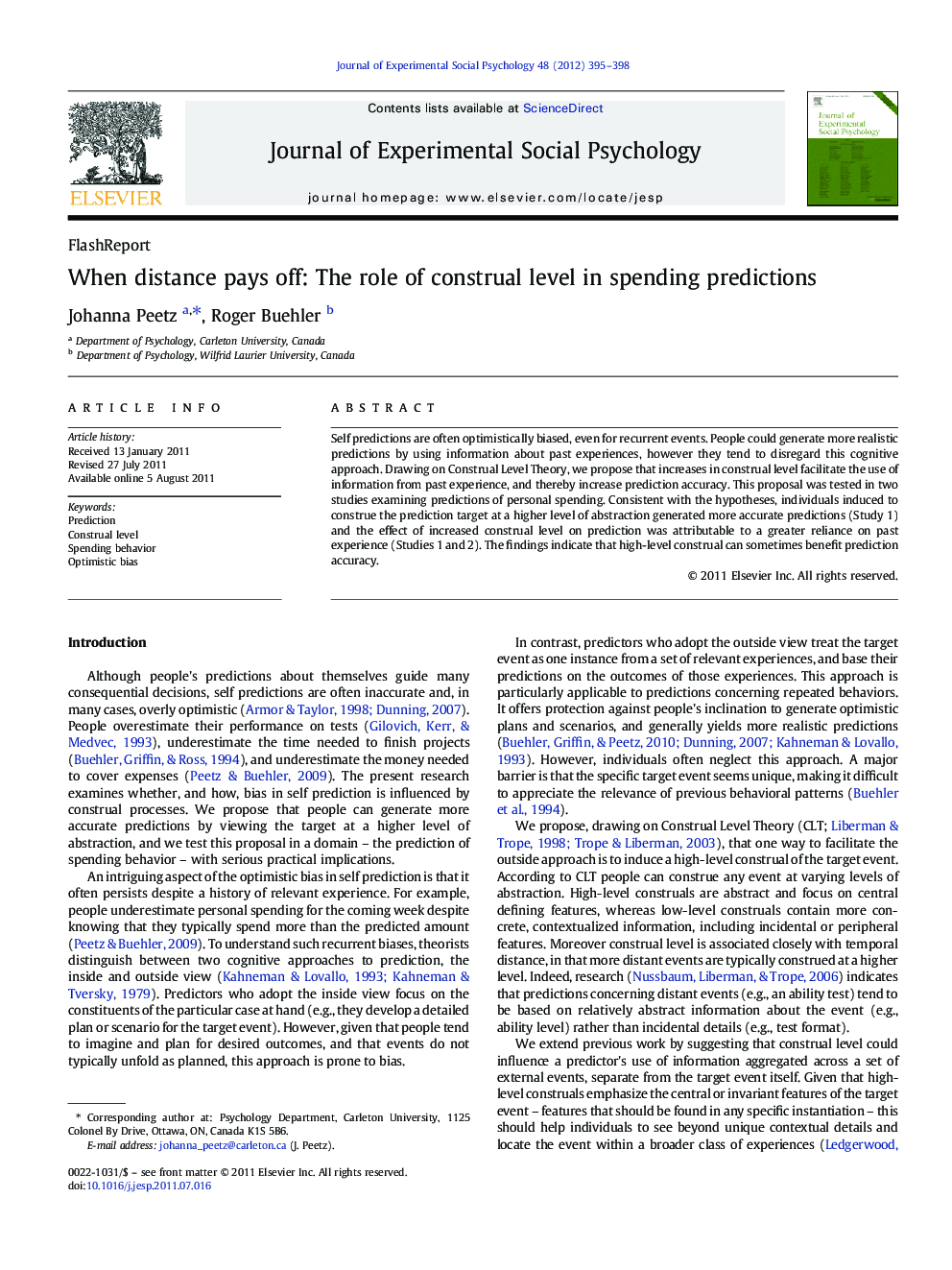| Article ID | Journal | Published Year | Pages | File Type |
|---|---|---|---|---|
| 948255 | Journal of Experimental Social Psychology | 2012 | 4 Pages |
Self predictions are often optimistically biased, even for recurrent events. People could generate more realistic predictions by using information about past experiences, however they tend to disregard this cognitive approach. Drawing on Construal Level Theory, we propose that increases in construal level facilitate the use of information from past experience, and thereby increase prediction accuracy. This proposal was tested in two studies examining predictions of personal spending. Consistent with the hypotheses, individuals induced to construe the prediction target at a higher level of abstraction generated more accurate predictions (Study 1) and the effect of increased construal level on prediction was attributable to a greater reliance on past experience (Studies 1 and 2). The findings indicate that high-level construal can sometimes benefit prediction accuracy.
► Personal spending predictions are optimistically biased. ► This bias stems in part from a disregard of past spending experiences. ► High-level (vs. low-level) construal level promoted reliance on past experience. ► High-level construal increased spending predictions, reducing optimistic bias.
